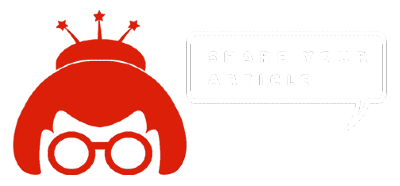As trans men, Zefan Nugraha and Mario Prajna Pratama have different work experiences. Starting our chat that Friday (12/8/2022) afternoon, Zefan from Transmen Indonesia said that the treatment he experienced at work was different. This all still depended on the business owner or the owner.
What is certain, this shows that there are no rules or systems that regulate work comfort and safety for trans men.
The different experiences that Zefan refers to are about how open the thoughts and knowledge of the owner or management in the workplace are toward gender diversity. Zefan started working in 2013 after completing his high school studies.
At that time, he had not yet introduced himself as a transman or translaki. He also has not done hormone therapy even though he has identified himself as a man. According to him, the main obstacle he faces at work is clothing.
“The problem is uniforms are more common because in the Food and Beverage (F&B) industry, it’s very hospitality, it’s like having to wear skirts, looking good, and so on,” said this trans man with a height of 171 centimeters.
Apart from the F&B sector, Zefan has also worked in cafes, managed CD rental kiosks, and worked in pet shops and internet cafes (internet cafes).
“But at that time, I was able to advocate so that I could wear cloth pants, not a skirt, even though the name that was attached matched the name written on the job application, not Zefan,” said Zefan.
In 2017, while working at the restaurant, Zefan dared to use a name he was comfortable with. “They know I’m a masculine lesbian or same-sex lover,” as well as when she worked at an internet cafe, and she was still considered a handsome woman.
It’s another story when he worked in a coffee shop where he had undergone a transition or hormone injections. He was once laughed at because he was considered the opposite of Lucinta Luna. “Ohh, so you’re like Lucinta Luna but the opposite, huh,” said Zefan, imitating his friends’ jokes.
Not only that but certain gender stereotypes have also been attached to it.
“So I’m not really masculine, so if I walk and then sit, I sometimes cross my legs, so I’m called gay,” said Zefan while laughing.
Zefan’s experience in applying for jobs also doesn’t always go smoothly. Even though sometimes the owner or the management where he applies for work has an open mind, Zefan still has experienced being refused a job because investors do not agree to accept transgender workers.
Trans Men’s Vulnerability to Violence in the Workplace
Besides being rejected when accessing work, Zefan has also experienced sexual harassment by fellow workers. “At that time, my appearance was already masculine, but there was a gentleman like that; maybe he was a sex offender, so he liked to squeeze the buttocks of female workers. He also did that to me because he thought I was a girl.”
At that time, Zefan did not understand that this was sexual harassment. Another reason is that Zefan doesn’t feel that he is a woman, so this action does not insult him.
The vulnerability to violence like that experienced by Zefan is not much different from what Tama (Mario Prajna Pratama’s nickname) expressed in reports that came to Transmen Indonesia.
“Most informal jobs that trans men do are ‘rough’ jobs. For example, in Kalimantan, some work as bartenders at cafes, karaoke, or security guards at nightclubs.”
According to Tama, this makes trans men vulnerable to sexual violence. In Eastern Indonesia, many transmen work as motorbike taxi drivers or construction workers, and the world of work is dominated by male workers who have almost no protection. This condition also increases the vulnerability of transmen to sexual violence.
Another vulnerability that often occurs is the question of gender expression, whether trans men fall into the category of girls or boys. Zefan suspects this is because there is no standard administrative mechanism yet.
“It seems they don’t have a clear administrative system mechanism yet,” he said.
The administrative system mechanism that Zefan means is that if you employ a trans man who has a difference between the sex on the KTP and his gender identity, administratively, it will be considered invalid.
“There’s more discrimination during interviews. I have the answers ready, but if they don’t ask, I won’t explain,” Zefan said.
But he also doesn’t deny that sometimes, when they see his masculine appearance, they call him “Mas.” In the world of work, people also see their abilities and work experience, not just from gender identity.
“But it’s easier when I have transitioned (hormone injections), but for trans male friends who haven’t transitioned, they are prone to getting misgendered,” he explained.
Misgendering is a gender marker incorrectly used to refer to or address someone. According to Zefan, trans male workers who have not had hormone injections are more prone to experiencing misgendering. For example, they are still called Ma’am even though they identify themselves as a trans man.
Lack of Understanding of Trans-Man Employers
Until now, there are still many people who do not fully understand the existence of trans men. There are still many people who identify transgender as trans women.
“When talking about transgender, people know only transgender people, so when I said I was transgender, it was never thought that I wanted to look like a waria,” said Zefan.
This lack of understanding about trans men adds to the marginalization and inclusiveness of the world of work for trans men.
“Many don’t know about trans men. They know I’m a boy because I’m already cis-passing. While those who have not transitioned are included as girls. It’s like a trans man. You have to push and be cis passing. Otherwise, you’ll be caught.”
Cis passing is a trans man who is considered to have done things that society has constructed for male characteristics.
Continuing the matter of uniforms which are still enforced in binary or only men or women, also raises its own problems. According to Zefan, workplaces with work uniforms in the form of t-shirts create fear in themselves.
“Like fear of being found out if it’s a woman if you can see her chest is still protruding,” he said.
Complementing Zefan’s explanation, Tama added that this strict enforcement of uniforms impacted the limited access to jobs for trans men. “Indeed, there are no written rules prohibiting trans men from accessing certain jobs, but because they are uncomfortable, they choose not to take them. When they decide to stay at work, they have to compromise. So, compromising every day makes you feel uncomfortable. What I saw from friends’ accounts was really stressful,” said Tama.
Some time ago, some trans men were accepted as Civil Servants/PNS, which according to Tama, showed good things because they were recognized based on their skills, but it was this uniform rule that again trans men had to compromise.
“He needs that job for the comfort of life. Imagine having to leave a financially secure job like a civil servant. That’s sad,” he said.
Systemic Homework!
At the National Meeting held by Transmen Indonesia last June, access to jobs became the sixth priority issue that will be carried out going forward. Tama highlighted that this issue is quite essential.
“Reflecting on transgender friends, we are facing stigma and legal recognition of the gender identity of transgender men,” he said.
Tama emphasized that when there is no state recognition to facilitate the replacement of gender markers in population administration documents, there will be many obstacles.
“So in the future, we will shoot a state policy while encouraging trans men to share tips, for example, teaching how to open a private business to other trans men.”
However, Tama says opening your own business does not solve the problem. In the long term, there is still a need for policies to make it easier for transgender people, both trans men, and trans women, to process Adminduk documents, especially the ease of changing the writing of a gender that is different from the one assigned at birth.
Tama gave an example of good practices, such as those carried out by the Philippine government, that could be adopted by the Indonesian government. “Because targeting state policies is difficult, in the Philippines, there is a civil society movement that advocates for companies by pushing for a better understanding of SOGIESC or Sexual Orientation, Gender Identity, Expression, and Sex Characteristics.
The result of education conducted by civil society is that companies are more willing to employ trans men and transgender.
Society’s acceptance of transgender people is important. So far, transgender people, both transmen, and transwomen, have not been treated the same. Tama gave an example of trans women who have been given training and empowerment. When no job opportunities are available, they open their own businesses. But when society cannot accept their existence, their business will be destroyed by society.
According to him, the same thing can be experienced by trans men. When trans men open their own businesses, the community around them can destroy the business if the community cannot accept it.
Therefore, Tama emphasized the importance of anti-discrimination policies, especially those related to population administration.
“Referring to the SDGs slogan, no one left behind. When empowering, they should follow their respective fields without certain identity limitations. Don’t give them that empowerment-that’s all that doesn’t suit their interests,” he said.
Examining the good practices carried out by the government and employers in Indonesia, Tama can only say a little. “You can’t say that the government provides jobs because the state must open up the widest possible job opportunities without discrimination. We do not owe the government because it has created jobs for us (transgender). So, I haven’t seen good practice in Indonesia, the system is still don’t ask or don’t tell, or it’s not written down.”
According to Tama, the most possible thing to do in creating an inclusive world of work for trans men is a workplace that has a non-discriminatory policy where everyone of any gender has equal opportunities.
“That’s kind of a minimal standard regardless of the workplace,”
Tama added about sensitization which must also be carried out by fellow employees. “It’s also not funny if we’ve been accepted to work but then are bullied by fellow workers,”
SOGIESC’s awareness and knowledge-raising strategy, coupled with sensitivity to issues of all workers, is the affirmation that is most feasible and easier to implement in the smallest world of work. This strategy at least answers the needs of companies or employers for the lack of understanding of trans men in the world of work.
Policies regarding workers’ rights in Indonesia are only listed in the Manpower Act. One of the fundamental rights that must be obtained is equal opportunity and treatment in work without discrimination for everyone, including trans men.
(This article is the result of the Gender Equality and Social Inclusion (GESI) Training and Fellowship Program supported by VOICE and Konde.co)
(Translated by Marina Nasution)













